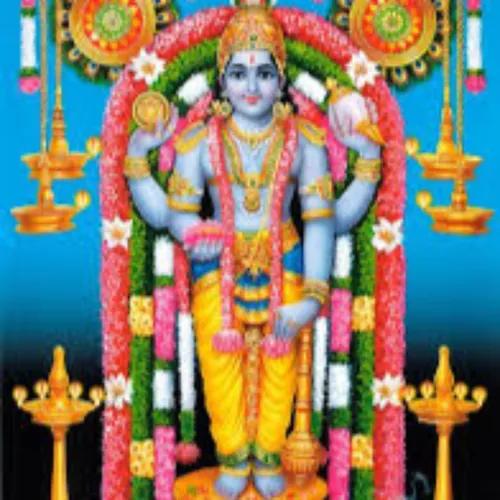Dashakam 023 Daksha & Chitraketu
- Author
- Santana Dharma The Life
- Published
- Sat 09 Aug 2025
- Episode Link
- https://podcasters.spotify.com/pod/show/santana-dharma-the-life/episodes/Dashakam-023-Daksha--Chitraketu-e36la1h
This episode is significant for narrating the story of Daksha, Chitraketu, and the Maruths, which continues the theme of divine grace, cosmic order, and spiritual transformation. Key points of this Dashakam include:
The tale of Daksha, who was devoted to Lord Narayana and was granted a bride named Asikini to aid in the creation of species, reflecting divine blessings in cosmic functions.
Daksha's eleven thousand sons chose the path of salvation under Sage Narada's guidance instead of continuing worldly duties, which incited Daksha's curse on Narada, reflecting complex divine-human interactions and spiritual consequences.
The story of Chitraketu, the king of Surasena, who suffered the loss of his son due to jealousy but was consoled and enlightened by Sages Narada and Angirasa. The soul of his son, after death, questions his identity across various births, which removed Chitraketu's delusion and led him to worship Lord Narayana, ultimately receiving spiritual knowledge and becoming Lord of the Vidyadharas.
The narrative also mentions that Maruths, although born to a mother associated with demons, became allies of Indra, illustrating that even seemingly adversarial forces serve a higher good under divine will.
The Dashakam stresses that serving the Lord leads to good outcomes, regardless of the initial nature or intention, emphasizing the Lord’s supreme and benevolent power over all cosmic forces.
In essence, Dashakam 23 portrays divine intervention in both cosmic creation and individual spiritual awakening, showing how devotion, guidance, and grace help beings transcend suffering, delusion, and adherence to dharma. It deepens the philosophical and devotional thread in Narayaneeyam by illustrating how the worship of Lord Narayana leads to liberation and restoration of cosmic order.
This Dashakam bridges cosmic myth, human experience, and spiritual truth by integrating stories of creation, loss, redemption, and divine wisdom under Lord Narayana’s grace.
Namaskarams and Dhanyavadaha to Smt Savithri Ramesh and Smt Asha Murarka for their help.
